Singapore, 2 September 2024
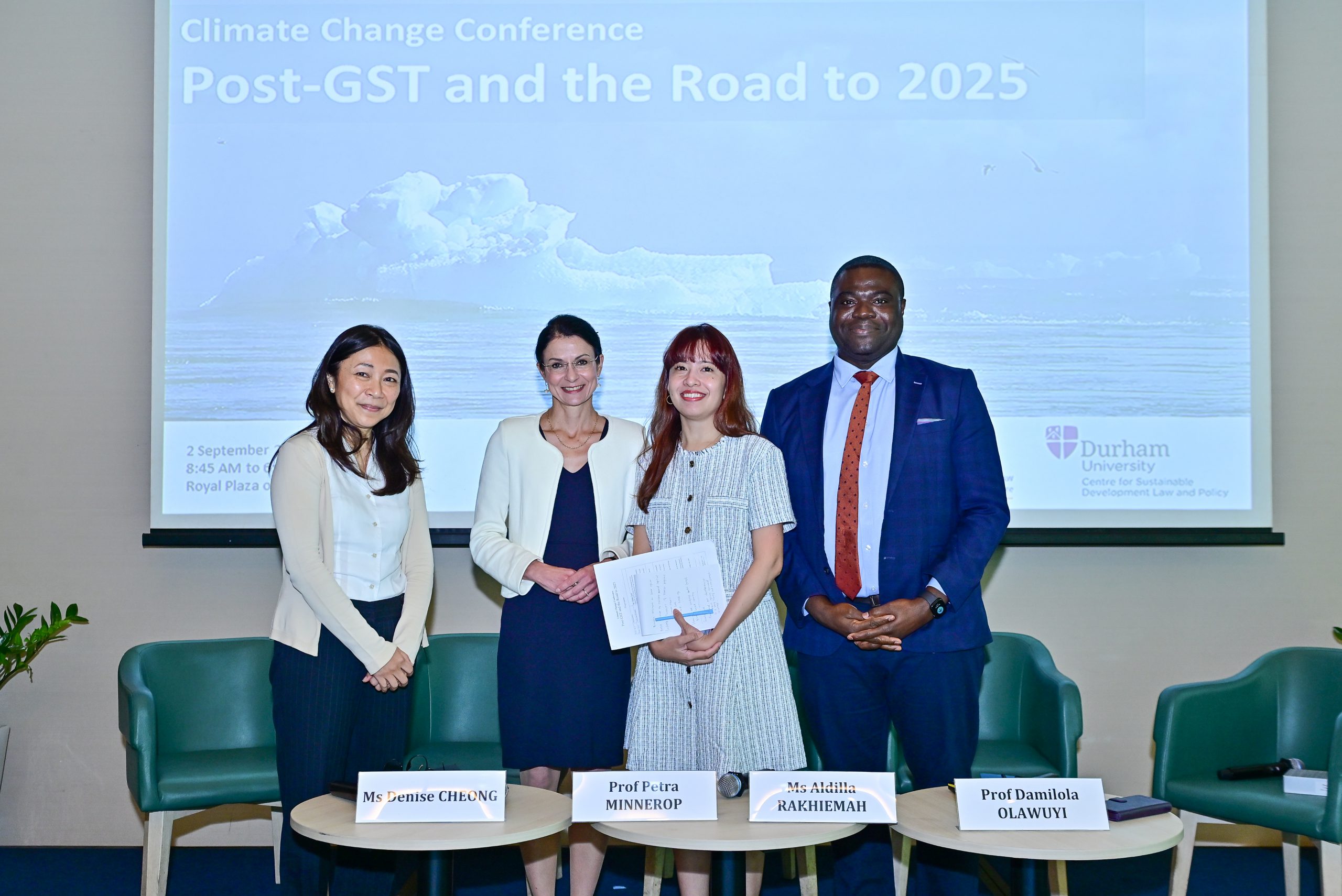
Photo 1. (Left-Right) Denise Cheong, Senior Research Fellow at NUS Centre for International Law; Prof Petra Minnerop, Director of Durham University Centre for Sustainable Development Law and Policy; Aldilla Rakhiemah, Senior Research Analyst of ACCEPT II; Prof Damilolu Olawuyi, Independent Expert from the United Nations Working Group on Business and Human Rights.
As a part of the ASEAN Centre for Energy (ACE), the ASEAN Climate Change and Energy Project (ACCEPT) Phase II supports the implementation of the ASEAN Plan of Action for Energy Cooperation (APAEC) as one of its key objectives, with a strong focus on Programme Area No. 6, Regional Energy Policy and Planning, and Outcome-based Strategy (OBS) 6, “Promote Information Sharing on the Energy-Climate Nexus”. Under this strategy, ACCEPT is actively promoting information sharing on the energy-climate nexus, expand partnerships with Dialogue Partners (DPs) and International Organisations (IOs), and advance energy policy and planning to accelerate the region’s energy transition and resilience. These multifaceted efforts will allow ACCEPT to play a key role in developing the next phase of ASEAN’s regional energy blueprint.
In its continued effort to promote the integration of energy and climate policies, ACCEPT participated in the Climate Change Conference entitled “Post-GST and the Road to 2025”. Organised by the Centre of International Law (CIL) of National University of Singapore (NUS), the conference took place at the Royal Plaza on Scotts, Singapore, on 2 September 2024. This event featured a diverse set of speakers that focused on a wide range of climate-change related topics, aiming to address the implications of just energy transition and how it can be incorporated into Nationally Determined Contributions (NDCs).
To kick off the conference, welcoming remarks were delivered by Dr Nilufer Oral, Director of NUS Centre for International Law and Member of the United Nations (UN) International Law Commission and Prof Petra Minnerop, Director of Durham University Centre for Sustainable Development Law and Policy. The opening presentation, entitled “The Global Stocktake–Past, Present, and Future”, was delivered by Joseph Teo, Chief Negotiator for Climate Change Singapore.
The following session, entitled “Just Transition”, was moderated by Denise Cheong, Senior Research Fellow and Lead, Energy Law and Policy at NUS CIL. Prof Petra Minnerop opened the discussion with a presentation on “Just Transitions in Climate Law”. On the other hand, Prof Damilola Olawuyi, Independent Expert from the UN Working Group on Business and Human Rights, delivered a presentation that explored the intersections of “Just Transition, ESG, and Human Rights”.
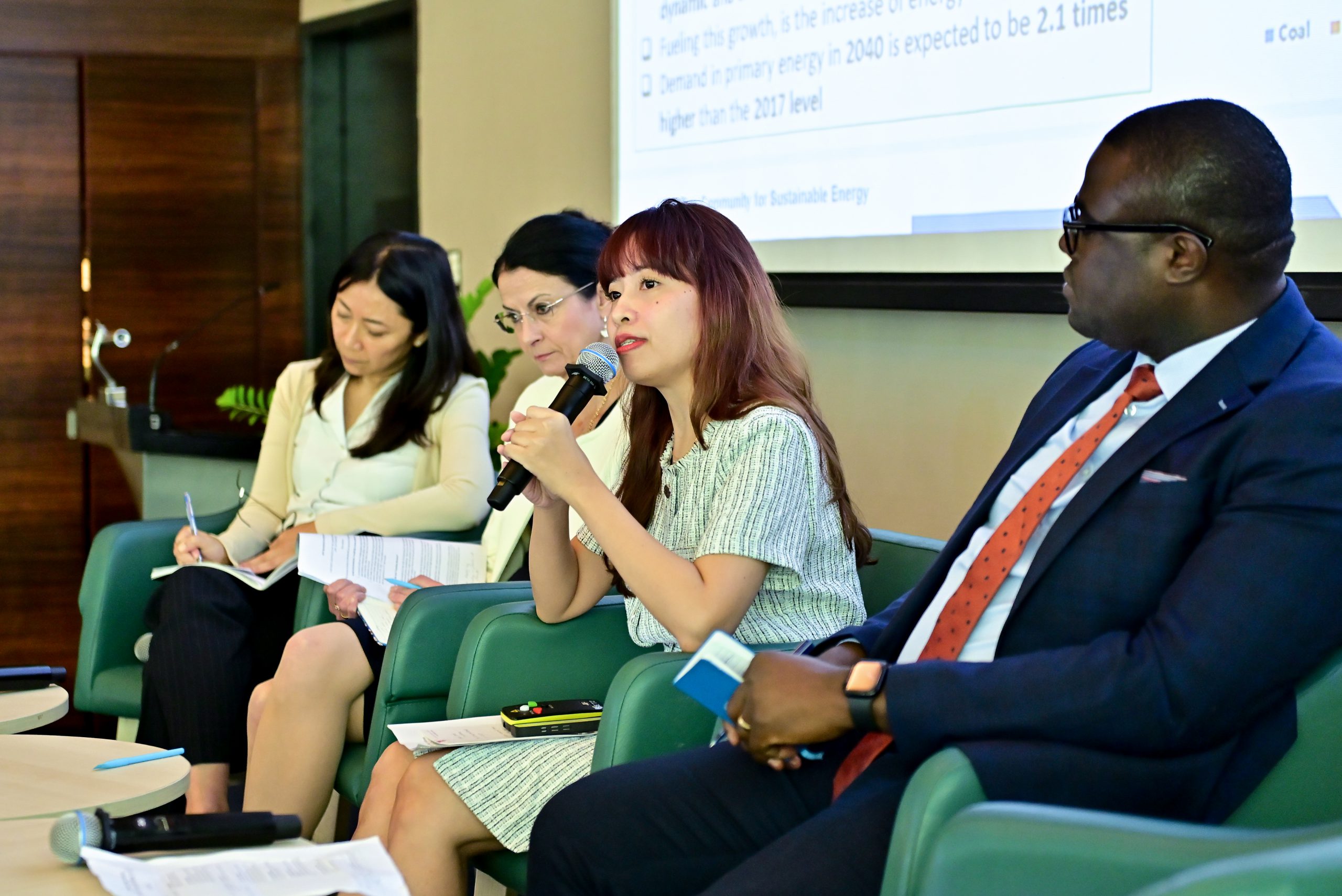
Photo 2. Aldilla Noor Rakhiemah, Senior Research Analyst of ACCEPT, delivering her presentation.
In this session, ACCEPT was represented by Aldilla Rakhiemah, Senior Research Analyst of ACCEPT II, who delivered a presentation on “Just Energy Transition in ASEAN”. She began by providing an in-depth overview on ASEAN’s pathway to decarbonisation which is guided by the APAEC. She also introduced the 7th ASEAN Energy Outlook (AEO7), the official reference for ASEAN’s Energy Landscape, while highlighting the region’s exponential increase in energy demand alongside economic growth. She noted that by 2040, ASEAN’s primary energy demand is projected to be 2.1 times higher than 2017, significantly contributing to climate change. In response, ASEAN Member States have recognised the importance of transitioning to a low-carbon economy and are continuously implementing policies to boost renewable energy (RE) uptake. However, fossil fuels are expected to still dominate the energy mix in the near future to maintain the region’s energy security, with 63% having contributed the total final energy consumption (TFEC) in 2017. This is projected to continue until 2040 in baseline scenario.
Following on this note, Aldilla further underscored that achieving APAEC targets in 2025 will require energy efficiency measures to be coupled alongside increasing the share of RE. She presented the Least-Cost Optimisation (LCO) scenario, one of the scenarios outlined in AEO7, which projected a reduction in energy supply by fuel to 2.5 times the 2020 level. Moreover, she also highlighted the commitment of each ASEAN Member States to Carbon Neutrality or Net Zero and noted ASEAN’s commitment for Just Energy Transition that was stated in the 41st ASEAN Minister of Energy Meeting (AMEM) Joint Declaration in 2023.
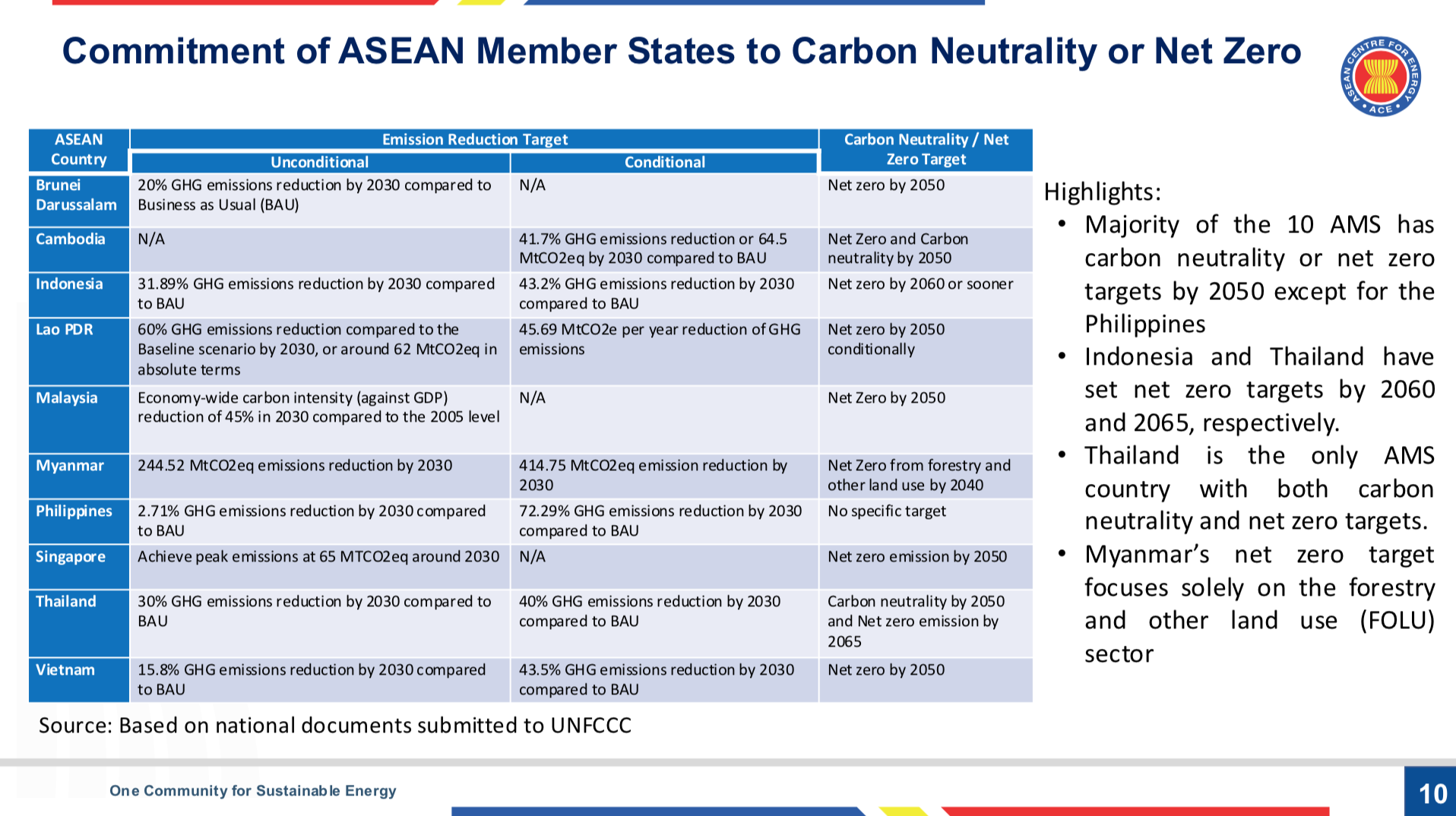
Photo 3. Commitment of each ASEAN Member State to reach carbon neutrality or Net Zero
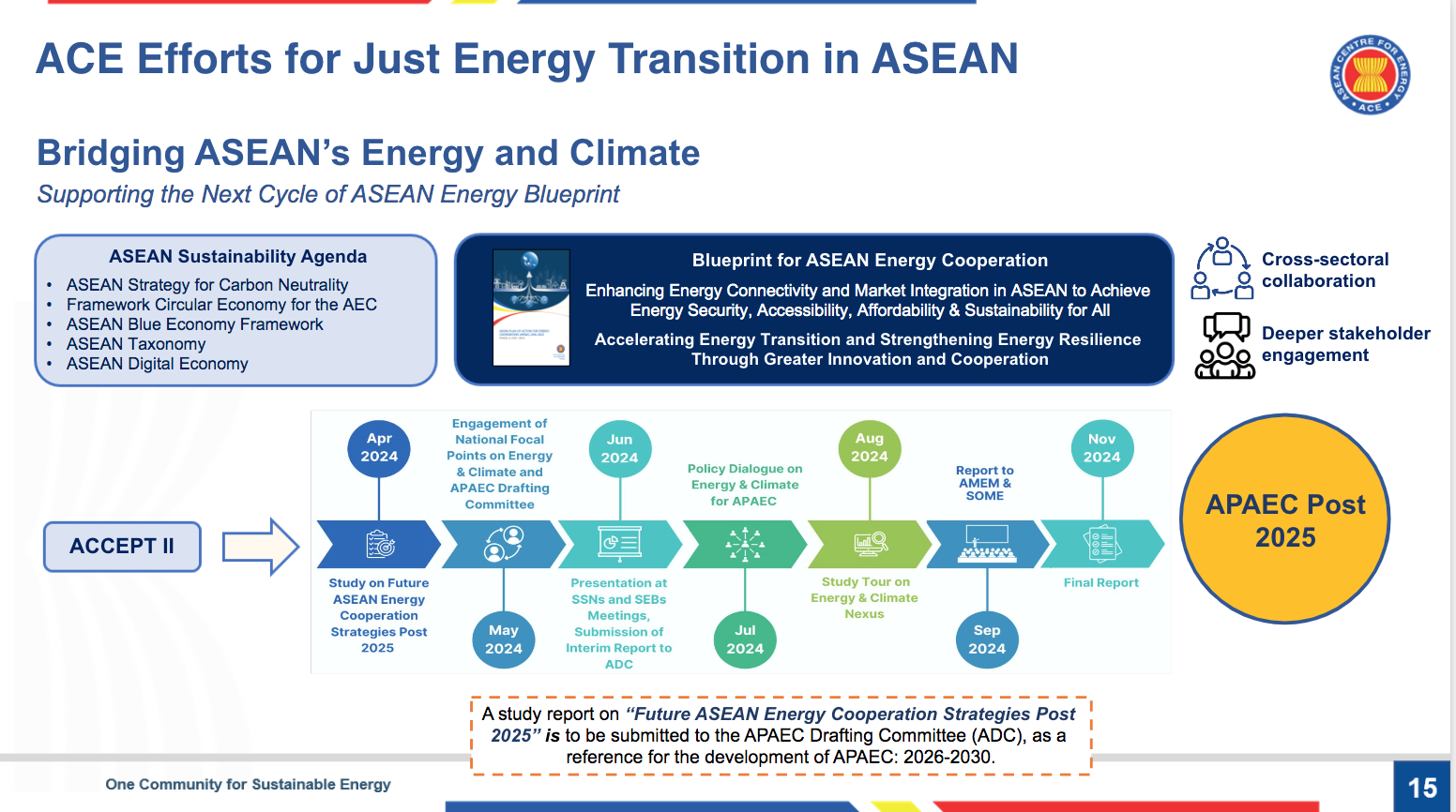
Photo 4. ACE’s efforts for Just Energy Transition through ACCEPT II
The next session on “Enhancing Ambition – The Law and Economics of Climate Change” was moderated by Danielle Yeow, Adjunct Senior Research Fellow and Lead, Climate Change Law and Policy at NUS CIL. Peter Govindasamy, Director-General (Climate Negotiations) and Dean (MTI Academy), Ministry of Trade and Industry Singapore, presented “Fostering mutual supportiveness between Trade (WTO) and climate (response) Measures (UNFCCC)”.
An MOU Signing with Universiti Malaya was held to finalise the Launch of the ASEAN Universities Network on Climate Change. It was conducted by two representatives from Universiti Malaya, who were Prof. Ir. Dr Kaharudin Dimyati, Deputy Vice Chancellor (Research and Innovation) and Dr Helena Varkkey, Associate Professor of the Department of International and Strategic Studies. It was then followed by a MoU renewing with Durham University, led by Prof Petra Minnerop and Prof Laura Marsiliani, Professor of Economics Director at Durham University.
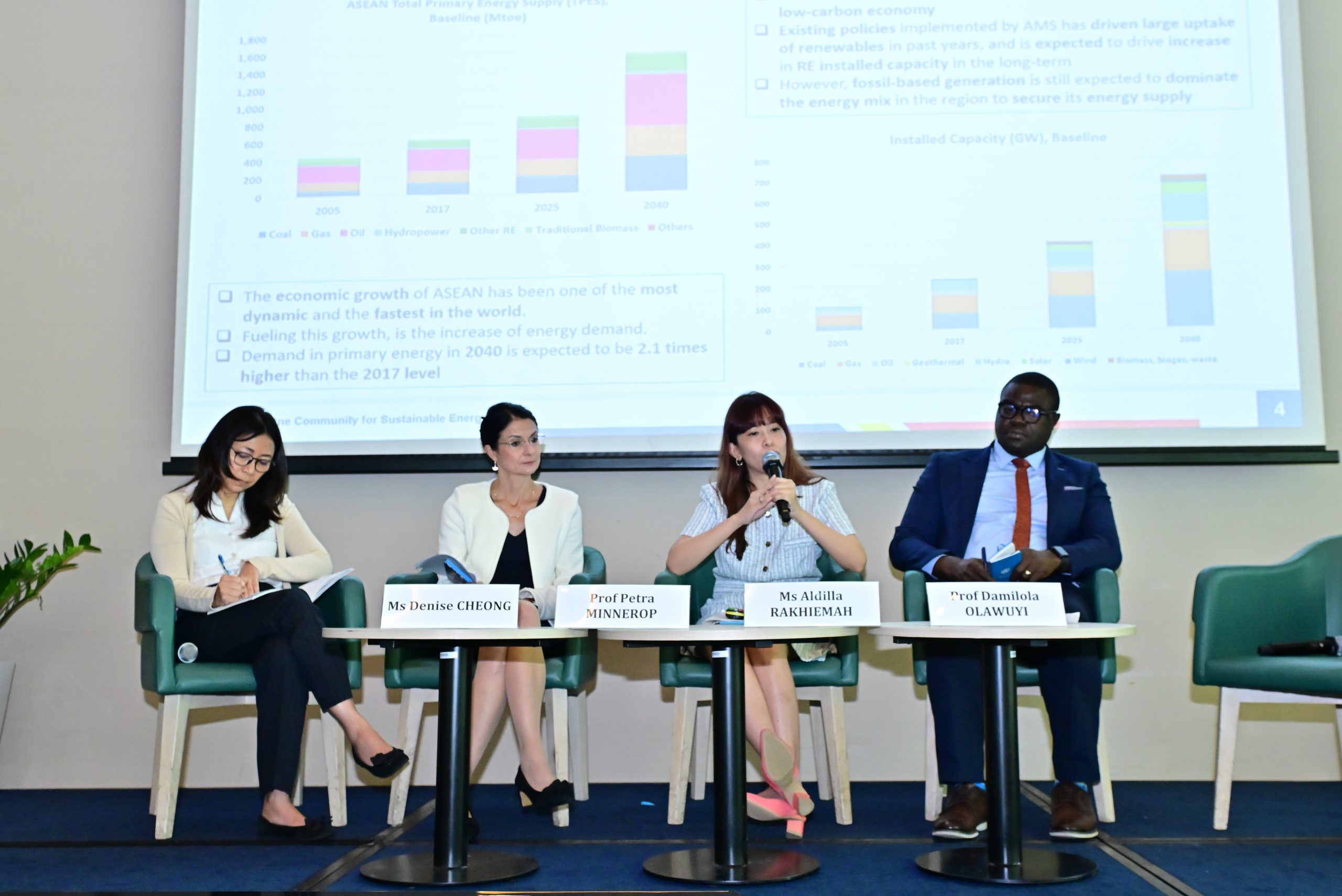
Photo 4. Discussion session during the conference
The third session on “Modalities and Means for Implementation” was moderated by Prof Laura Marsiliani and featured a presentation by Diane Tan, Deputy-Director General at the Paris Agreement Implementation and Compliance Committee (PAICC), where she gave a brief introduction to the PAICC. The Honourable Justice Brian Preston, Chief Judge, Land and Environment Court of New South Wales, gave a presentation that discussed “Can litigation assist in implementing the outcome of the global stocktake?”. Lastly, it was followed by a discussion led by Prof Jolene Lin, Director of NUS Asia Pacific Centre for Environmental Law, who presented “International Legal Proceedings: Improving implementation, Strengthening State Climate Action”.
Moving onto the fourth session that was Moderated by Railla Puno, Associate Lead and Research Associate of Climate Change Law and Policy at NUS CIL, participants focused on the theme of “Nature-based Solutions, Ocean and Climate Change”. Several notable speakers gave presentations surrounding the topic, namely Dr Nilufer Oral, Director of NUS CIL, Dr Madhu Rao, Senior Advisor (Asia Programme) & Director (Singapore) of Wildlife Conservation Society Chair at IUCN World Commission of Protected Areas, Dr Tanghua Li, Senior Research Fellow at Nanyang Technological University Singapore, and Will McDolgrick, Regional Managing Director of Asia Pacific at the Nature Conservancy.
The last session of the conference focused on the theme of “International Climate Change Regime – 2030 and Beyond”. This session was moderated by Nilufer Oral and featured a diverse set of panellists. Danielle Yeow, Prof Petra Minnerop, Diane Tan, and Dr Helena Varkkey participated in the panel.
As a way forward for ACCEPT in ASEAN’s path towards just energy transition, the project will continue to play a pivotal role in shaping the upcoming phase of the APAEC. Key contributions will focus on the integration of energy and climate policies, emphasising balancing energy security with climate change mitigation alongside the importance of addressing the energy trilemma. ACCEPT will also further advocate for inclusive energy policies through multi-stakeholder dialogue, spearhead the implementation of the ASEAN RE-Gender Roadmap, and raise awareness through capacity building, knowledge exchange, and database improvement.
(AZD)
Join our ASEAN Researchers Network on Climate Change (ARNECC) by registering yourself here. Become a part of our collaborative efforts to address pressing climate challenges and shape a sustainable future.
Detailed information on ACCEPT II can be found at https://accept.aseanenergy.org/
Follow our social media to get the latest updates on ACCEPT activities and ASEAN energy-climate information:
Instagram: instagram.com/asean_accept
X: x.com/asean_accept
We welcome any future collaboration, please feel free to contact us at [email protected]